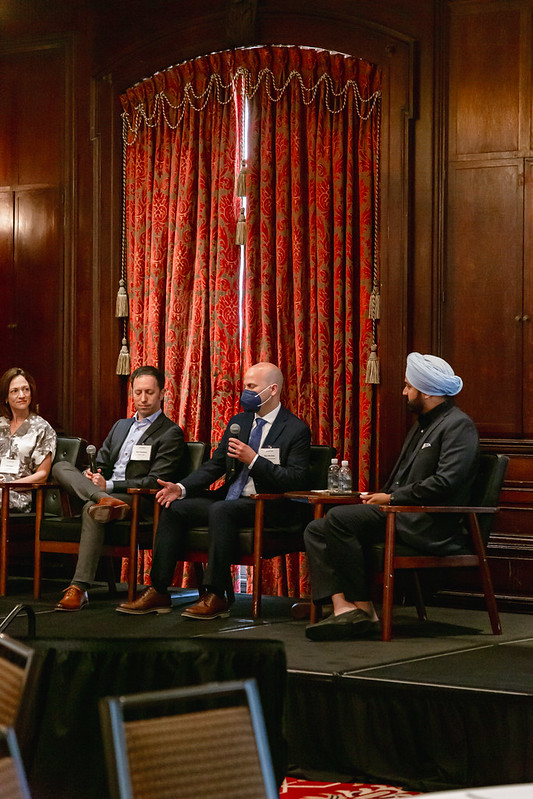Incentive alignment in value-based models
By Jack Roland | July 2024
If you’re familiar with value-based care (VBC) models, you know two things:
- Preventative measures improve patient outcomes.
- Ascribing value and intention within VBC models is wildly complicated.
As we dig into VBC attribution, complexity continues to ramp up. Experts are constantly looking to perfect measurements that answer questions like, “How do you tie provider actions to improvements in patient health?” or “How do you account for readmissions due to an issue separate from a patient’s original hospital visit?”
Navigating the intricacies of outcomes measurement within VBC models is essential for payors, providers, and vendors. But doing so cannot come at the cost of neglecting the social aspects of care.
The human-centric components at the core of the value-based model were at the forefront of discussion during Archetype’s 2024 Annual Meeting. The event brought together a panel to discuss “Driving Success in a Value-Based Future: The Importance of Education and Community in Health Outcomes.” Participants included healthcare industry experts Nick Moriello, Jill Angelo, Darin Buxbaum, and Chetan Bagga.
The panelists discussed the enhancement of patient experience with engagement built through trust. Nick Moriello, President of Highmark Blue Cross Blue Shield Delaware, expressed a belief that trust-derived experience and engagement leads to improved patient outcomes. He continued, sharing that better health outcomes also align with strategic goals of insurers, like cost predictability and member retention.

Nick Moriello, President of Highmark Blue Cross Blue Shield Delaware (speaking), with panelists Jill Angelo, Darin Buxbaum, and Chetan Bagga
Retention of members has an immediate topline impact for both providers and payors. Patients are 2x more likely to switch plans when insurers are difficult to work with and 3x more trusting when a plan gives consistent and accurate information.
Providers and payors that receive government reimbursement have an additional incentive to create trust amongst members. Star ratings – which determine bonuses for Medicare Advantage organizations – weight patient experience heavily.
Solutions that drive individual patient trust heighten success for payors and providers. As Nick stated, any upside for payors, “start[s] with the experiences of a person.” These stakeholders must identify innovative vendors, and effectively integrate their solutions, to deliver the most impactful care and ensure the desired economic returns associated with value-based models.
Interested in hearing more of Archetype’s perspective on industry news and trends? Subscribe to our newsletter for market updates.
Jack is a Senior Analyst at Archetype, where he enables deal execution, diligence, and portfolio management. He has a BA from the University of Pennsylvania.
